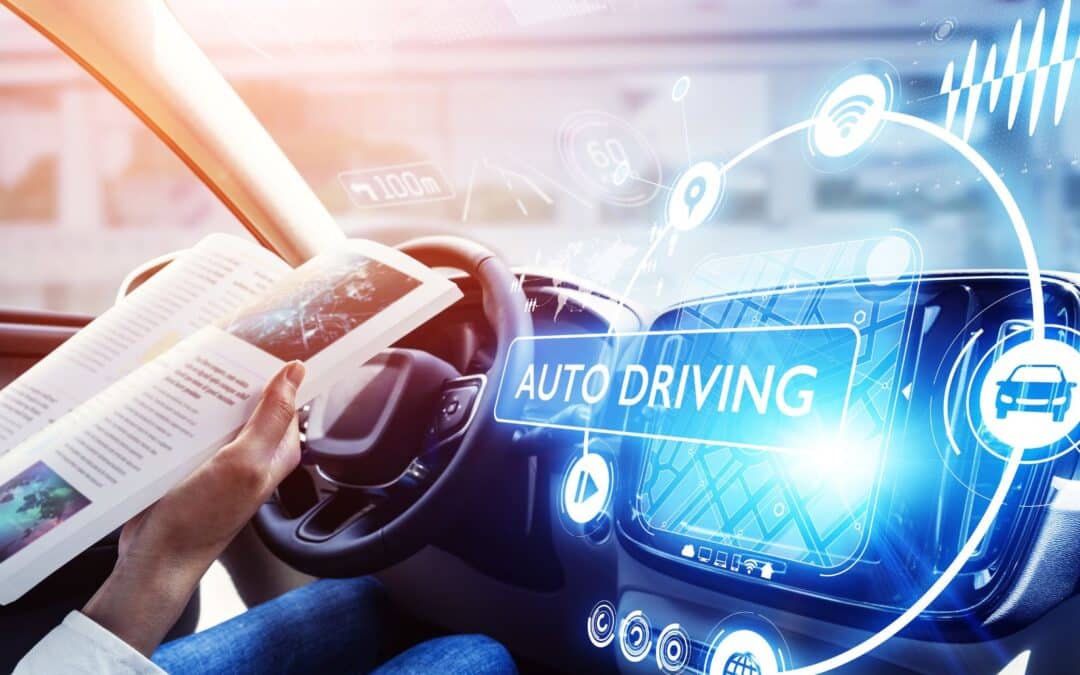As technology continues to advance, autonomous vehicles (AVs) are becoming increasingly prevalent on Illinois roads. While AVs promise enhanced safety and efficiency, their integration raises complex regulatory questions. In this article, we’ll delve into the current state of AV regulations in Illinois, exploring implications for road safety and personal injury laws.
(The Impact of 5G Networks on Autonomous Vehicle Communication: Enhancing Road Safety in Chicago)
Understanding Autonomous Vehicles
Autonomous vehicles operate using advanced software, sensors, GPS, and mapping technology, enabling them to navigate roads without human input. The Society of Automotive Engineers (SAE) classifies AVs into six levels, ranging from no automation to full automation. Currently, AVs on Illinois roads typically fall within Levels 2-4.
Level 2 autonomy, for instance, enables vehicles to take control in specific situations, such as adaptive cruise control or lane-keeping assistance.
Level 3 autonomy allows vehicles to control most functions but requires human drivers to be prepared to intervene.
Level 4 autonomy enables vehicles to control all functions, with human override options.
Illinois Autonomous Vehicle Regulations
The Illinois Secretary of State and Illinois Department of Transportation (IDOT) oversee AV regulations. To ensure public safety, manufacturers must meet specific safety standards and comply with federal guidelines. Human operators must be present and attentive during Level 2-3 operations, monitoring vehicle performance and prepared to take control.
IDOT established an Autonomous Vehicle Task Force to monitor regulatory developments, advise on policy changes, and ensure public safety. Manufacturers must register with IDOT, provide proof of liability insurance, and comply with reporting requirements.
Federal Regulations
The National Highway Traffic Safety Administration (NHTSA) sets federal safety standards for AVs. Manufacturers are encouraged to submit voluntary safety self-assessments to NHTSA, demonstrating compliance with guidelines on cybersecurity, data protection, and transparency.
Personal Injury Implications
AVs introduce novel liability concerns. Product liability may arise from design or manufacturing defects, while driverless vehicles raise questions about operator negligence. Current insurance frameworks may need revision to address no-fault insurance, liability allocation, and coverage limits.
Comparative Fault in AV Accidents
Determining fault in AV-related motor vehicle accidents involves evaluating human driver actions and assessing AV system performance. This complex process requires expertise in both personal injury law and AV technology.
Chicago Personal Injury and AV Accidents
As AVs become more common on Chicago’s roads, residents need to be aware of their rights. If injured in an AV-related accident, it’s essential to seek medical attention immediately and consult with experienced personal injury attorneys.
The Future of Autonomous Vehicles in Illinois
As regulations evolve, Illinois aims to balance innovation with public safety. Ongoing developments include expanded AV testing zones, public education campaigns, and continuous review of regulatory frameworks.
Legislative Initiatives
The Illinois General Assembly considers bills addressing AV regulations, aiming to create a comprehensive framework for safe deployment.
Conclusion
Autonomous vehicles are transforming Illinois roads. Staying informed about regulatory developments is crucial. If you or a loved one is involved in an AV-related accident, Bizzieri Law Firm’s experienced Chicago personal injury attorneys are committed to protecting your rights.
If you’re looking for an experienced Chicago personal injury lawyer to help navigate your personal injury claim, we will fight assiduously for your right to the compensation you deserve. Call Bizzieri Law Offices at 773.881.9000. The case evaluation is free, and we never charge a fee unless we recover damages for you.

